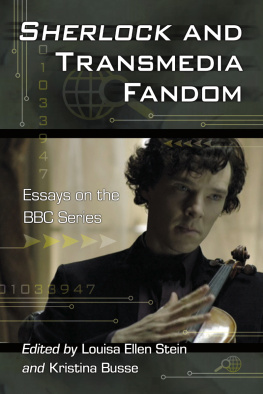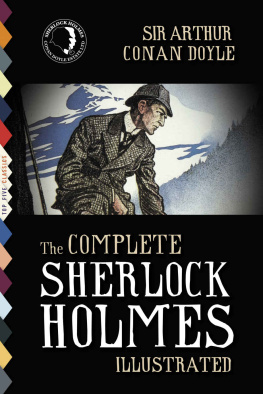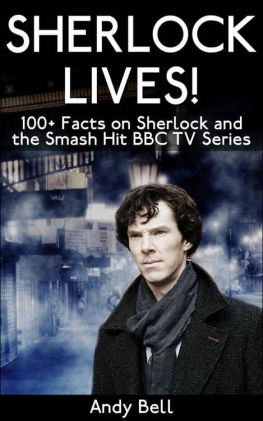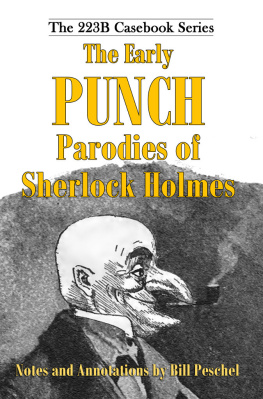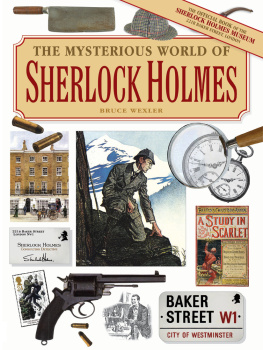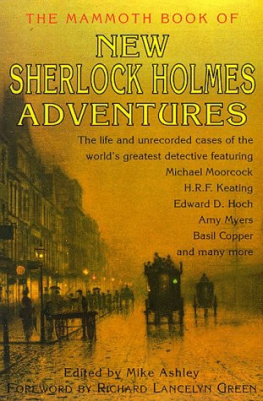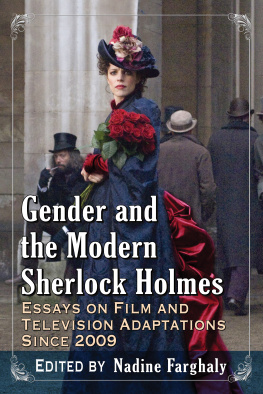
Sherlock and Transmedia Fandom
Essays on the BBC Series
Edited by Louisa Ellen Stein and Kristina Busse

McFarland & Company, Inc., Publishers
Jefferson, North Carolina
Also of Interest
Teen Television: Essays on Programming and Fandom. Edited by Sharon Marie Ross and Louisa Ellen Stein (McFarland, 2008).
Fan Fiction and Fan Communities in the Age of the Internet: New Essays. Edited by Karen Hellekson and Kristina Busse (McFarland, 2006).
LIBRARY OF CONGRESS CATALOGUING DATA ARE AVAILABLE
BRITISH LIBRARY CATALOGUING DATA ARE AVAILABLE
e-ISBN: 978-0-7864-9068-4
2012 Louisa Ellen Stein and Kristina Busse. All rights reserved
No part of this book may be reproduced or transmitted in any form or by any means, electronic or mechanical, including photocopying or recording, or by any information storage and retrieval system, without permission in writing from the publisher.
On the cover: Benedict Cumberbatch as Sherlock Holmes
McFarland & Company, Inc., Publishers
Box 611, Jefferson, North Carolina 28640
www.mcfarlandpub.com
Dedicated to all Sherlock Holmes fanspast, present, and future.
Acknowledgments
This collection would not exist without the support of a host of people including family, friends, and colleagues. Thank you to our families, Ben and Penelope, Ryan, Gabriel, and Matthias, for their support and patience with our ever-growing preoccupation with all things transmedia Sherlock. We also want to thank Kathleen Fitzpatrick, Avi Santos, and all the folks at MediaCommons for their help and the use of their infrastructure for the peer-to-peer review. Thank you to our external peer reviewers, Jason Mittell and Suzanne Scott, for bringing your outside eye and considerable insight to the project. Thank you to Alexis Lothian, Melanie E.S. Kohnen, and Jennifer Hock for brainstorming, draft-reading, and encouragement. Were also grateful to all of the collections contributing authors, who went far beyond the normal commitment of writing ones own essay, as they agreed to participate in the peer-to-peer online review process, and spent significant time commenting on each others essays and thus contributing to the vision of the collection as a whole. This collection is what it is because of the dedication, passion, and insight each one of you brought to the project.
And finally, thank you to Sherlock and Sherlock Holmes fandom, in all its manifestations, to Sir Arthur Conan Doyle for gifting us with Sherlock Holmes and John Watson in the first place, and to Steven Moffat and Mark Gattis, Mark Freeman and Benedict Cumberbatch, for animating these beloved characters anew.
Abbreviations
The following texts are cited throughout the collection and will therefore be abbreviated. The code in brackets designates the abbreviations used. Online references are cited in text where possible. All other references can be found in the Works Cited.
[I, II] Conan Doyle, Sir Arthur. 2005. The New Annotated Sherlock Holmes, Vol. 1 & 2, ed. Leslie Klinger. New York: Norton.
[III] Conan Doyle, Sir Arthur. 2006. The New Annotated Sherlock Holmes, Vol. 3, ed. Leslie Klinger. New York: Norton.
[ASiP] A Study in Pink. 2010. Sherlock, disc 1. BBC. DVD.
[ASiP Commentary] Vertue, Sue, Mark Gatiss, and Stephen Moffat. 2010. A Study in Pink Commentary. Sherlock, disc 1. BBC. DVD.
[TBB] The Blind Banker. 2010. Sherlock, disc 1. BBC. DVD.
[TGG] The Great Game. 2010. Sherlock, disc 2. BBC. DVD.
[TGG Commentary] Mark Gatiss, Benedict Cumberbatch, and Martin Freeman. 2010. The Great Game Commentary. Sherlock, disc 2. BBC. DVD.
[Unlocking] Unlocking Sherlock: The Making of. 2010. Sherlock, disc 2. BBC. DVD.
Prologue
Why Sherlock? Narrator Investment in the BBC Series
Lyndsay Faye
All novels are sequels; influence is bliss.Michael Chabon, Maps and Legends
I am often asked by concerned longstanding Sherlockian scholars (perhaps due to the fact that I turned thirty last year) whether I think there is any hope for the near-extinct species identifying themselves as Sherlock Holmes enthusiasts, andif there is hopewhat steps might be taken to brighten it. My response, following stark surprise, is that there are millions of young Sherlock Holmes aficionados living all over the world; they simply self-identify as fans and correspond largely via Internet media, invisible to the faraway naked eye of the local Sherlockian club member. I even claim that the world of Sherlockiana is richer than ever, due in part to vibrant new incarnations including the highly thoughtful BBC series Sherlock. However, as part of a generation of younger devotees who are both involved in longstanding Sherlockian clubs and versed in the vibrant fannish world of the web (I am an invested member of both the Adventuresses of Sherlock Holmes and the Baker Street Irregulars, and a great admirer of the Internet), I find myself frequently in the awkward position of being an apologist for one group to the other. The comforting thread running through these conversations, however, is a position from which I will never waver: fandom and traditional Sherlockiana have more in common than not, and, as John LeCarr said so eloquently in his introduction to Leslie Klingers New Annotated Sherlock Holmes, no one writes of Sherlock Holmes without love (I:xv). Whether that spark of ownership over the characters is engendered by the original canon or by more modern adaptations like the carefully wrought world of Moffat and Gatiss is, I think, rather a moot point. Our regard is undeniable, our claim already staked. What we want is more stories, and we will find themone way or another, and by various methods, each suited to our nature and our age and our tastes and our creativity. The question has never been, to my mind, will people continue to weave tales about Sherlock Holmes? Of course we will. I am much more intrigued by the query Why do we want them so badly?
When I came to the end of the Sherlock Holmes mysteries, at about age eleven, I decided at once that there must be more. If Conan Doyle had ungenerously decided to provide me with only sixty adventures to inhabit, well then, I would take matters into my own hands, and my remedy was one doubtless very familiar to every participant in BBC Sherlocks fan culture, or indeed any fan culture, far predating the arrival of the Internet: I would write more myself. I did pen more, but never finished a single one, and find them in retrospect to have been predictably terrible. Then I discovered that other similarly preoccupied souls had gone one better than me, and actually published new pastiches regarding the life of the Great Detective and the Good Doctor. I purchased dozens of them, whatever I could afford, and now own scores if not literally hundredssome good, many bad, many indifferent, devoured indiscriminately. When the production of printed matter failed to meet my appetite for my subject, I later discovered that friends more savvy were willing to tell me where the fan fiction was, and that much of it is very, very good indeed, considerably better than printed matter, and that even less well-written examples of fan fiction are far more engaging than going without a new Sherlock Holmes story for a month. Enter the 2009 Warner Bros. film titled
Next page
